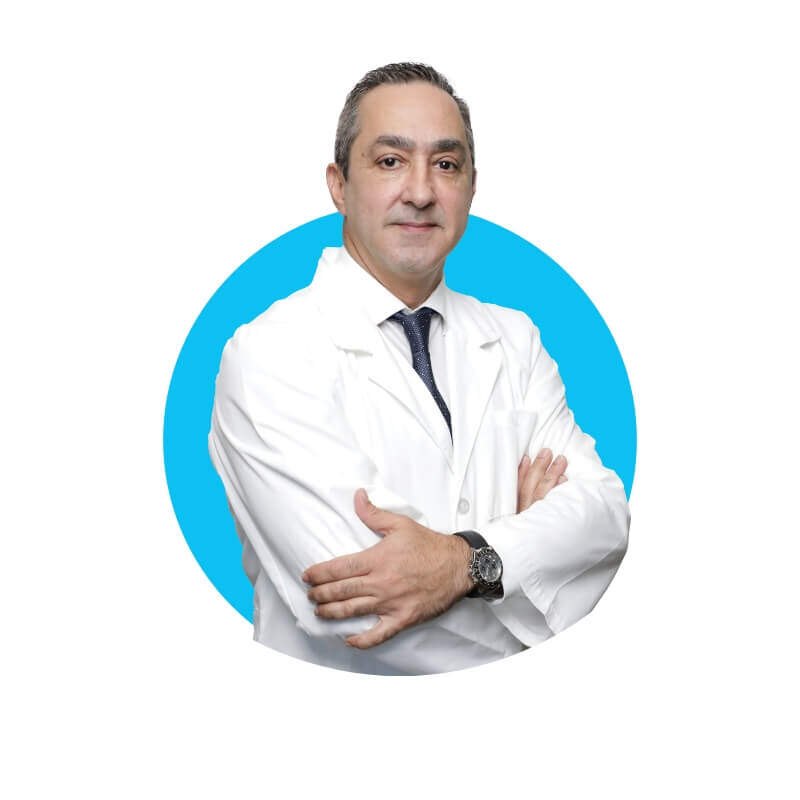Urinary Tract Infection Treatment in Dubai, Abu Dhabi and Al Ain
The majority of UTIs are caused by bacteria, although they can also be caused by viruses and fungi. They can affect any part of the urinary tract and are the second most common type of infection in humans. They should not be taken lightly as they can, in some circumstances, be life-threatening if the kidneys are infected.
What is the urinary tract?
The urinary tract consists of:
- Your kidneys are the two bean-shaped organs in your abdomen, one on either side of your spine. They filter your blood to remove excess salt, potassium, water, urea and other substances. The waste products leave your body as urine.
- The ureters are the two long ducts that carry urine from the kidney to the bladder.
- The bladder is a small, balloon-shaped organ located in your pelvis and, in men, can be found just above the prostate gland.
- The urethra is the tube that allows urine to leave the body. Men have a much longer urethra than women as it passes through both the prostate and the penis.
Causes and risk factors of UTIs
Anything that interferes with bladder emptying or irritates the urinary tract can cause a urinary tract infection. Risk factors include:
- Obstructions or blockages that make it hard to empty your bladder, for example, an enlarged prostate, kidney stones, and certain forms of cancer can cause blockages.
- Diabetes may make patients more susceptible to UTIs.
- Prolonged use of bladder catheters can increase the risk as they make it easier for bacteria to enter the bladder. Sometimes the device will need to be removed.
UTI symptoms
Symptoms of a UTI will vary, depending on whether it is the lower or upper part of the urinary tract that is infected.
- a burning sensation while urinating
- increased frequency of urination with less volume passed
- urine that resembles cola or tea
- blood in the urine
- cloudy urine
- strong-smelling urine
- rectal pain
Upper UTIs are infections of the kidneys and are potentially life-threatening if bacteria spreads to the blood; a condition called sepsis. Sepsis can result in shock, dangerously low blood pressure, and death. Symptoms of an upper UTI include:
- pain and tenderness in the upper back and sides
- chills
- fever
- nausea
- vomiting
Diagnosis of a UTI
If your history and/or a physical exam indicates you have a lower or upper UTI, your doctor will ask you for a urine sample.
You will need to give your urologist a ‘clean catch’ urine sample, caught mid-way so that it’s not contaminated by bacteria from your penis.
The urine will be tested to see how many white blood cells it contains, as an increased presence of these cells could indicate an infection. Your urine will also be cultured for bacteria to attempt to identify the cause of infection and to determine the appropriate treatment.
If your urologist suspects an upper UTI, he may also ask for a complete blood count (CBC) and blood cultures. This is to make sure the infection hasn’t spread to your blood.
If you have recurrent UTIs, the urologist will want to check if you have a blockage. There are three diagnostic tests he might use to check for this: an intravenous pyelogram (IVP) (a dye is injected to make your entire urinary tract visible), an ultrasound, or a cystoscopy (a small camera is inserted to examine the bladder and a biopsy might be taken to rule out bladder cancer).
Treatment of UTIs
Antibiotics are used to treat UTIs; in the case of lower UTIs you can take oral antibiotics, while upper UTIs require intravenous antibiotics. As bacteria sometimes develop a resistance to antibiotics, urine cultures can help your doctor choose an effective antibiotic treatment.
Prevention of UTIs
There are simple steps you can take to help prevent UTIs such as drinking six to eight glasses of water a day, drinking water after having sex, avoiding holding in urine for long periods of time, and wearing comfortable underwear (tight fabric traps moisture).
To book an appointment or for more information about Urinary Tract Infection Treatment in Dubai, call us toll-free on 800 (NOVO) 6686 or click the live chat icon at the bottom of the screen.
[xyz-ihs snippet=”B-A-Section”]





